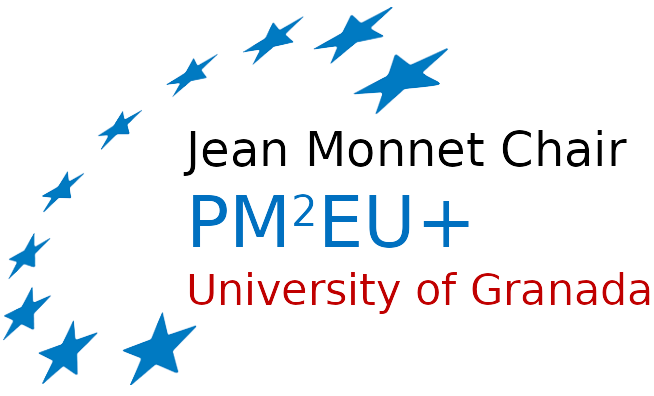This post contains the systematic management of the Jean Monnet PM2EU+ Chair. We use the framework and concept of the PM2 methodology. Information is provided on stakeholder management, risk management, quality, etc.
Stakeholders Management
One of the key elements in the success of any project is to carry out stakeholder management. The first stage and perhaps one of the fundamental ones is the identification. It is possible to know the needs, particularities and, finally, the interests and concerns of all stakeholders.
In this way, the Jean Monnet PM2EU+ Chair ensures that the demands of the stakeholders are are suitable for the scope, the time planning and resources of the Jean Monnet PM2EU+.
Change Management
Project change management defines the activities related to identifying, documenting, assessing, prioritising, approving, planning and controlling project changes, as well as communicating them to all relevant stakeholders. Changes can be requested (or identified and raised) throughout the project lifecycle by any project stakeholder.
Risk Management
Risk management is a systematic ongoing process for identifying, assessing and managing risks so that they conform to the organisation’s accepted risk attitude. Risk management improves the project team’s confidence by proactively managing any potential event that might have a positive or negative impact on project objectives.
Quality Management
The objectives and deadlines of the proposed activities have been included in the methodology and in the work programme. These variable will be used as key performance indicators and it will be the first tool for quality control and monitoring of the action.
The quality control and monitoring strategy foresees the establishment of Quality Control Group, development of contingency plan and preventive measures, implementation of external and quality assurance procedures.
Lessons Learned
Lessons learned is one of the most powerful tools available for project management. Throughout the project lifecycle, from kick-off to completion and operation, lessons are learned related to project management as well as the project deliverables themselves.
This learning affects fundamental issues such as change management, stakeholder management, risk and communication management, planning and replanning, and indeed all components of project management.
It is necessary to carry out an organised and systematic management of the lessons learned, identifying the stage, the consequences on the project's objectives (which may be positive, i.e. to be repeated and transferred to other similar projects, or negative, to be avoided in future similar situations).
As is being done in other management elements of the Jean Monnet Chair PM2EU+, the framework proposed by the PM2 methodology itself will be used to develop the activities of recording, monitoring and control of Lessons Learned.

